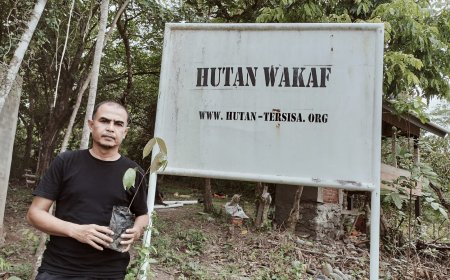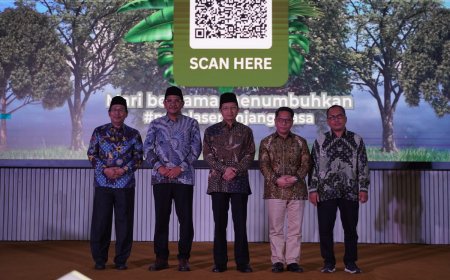Reduce waste in Green Ramadan
Household garbage accounts for the volume of garbage nationwide.
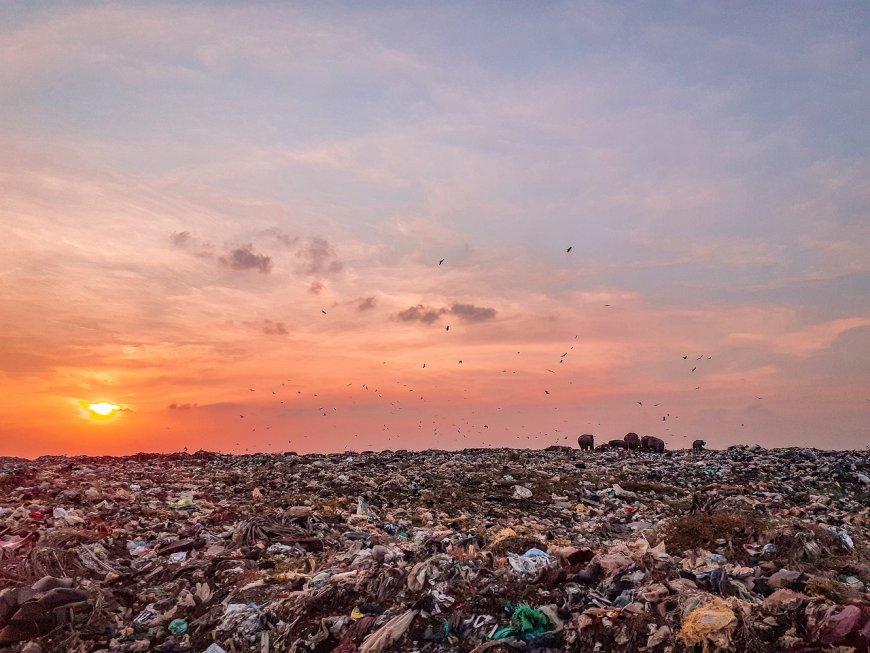
MOSAIC-INDONESIA.COM, JAKARTA -- Entering the holy month of Ramadan 1445 H/2024, Muslims throughout the world, including Indonesia, will observe fasting. This ritual of not eating and drinking from dawn until dusk is a way for all Muslims to train themselves to fight their desires, so they can live simply and not be excessive.
The holy month is also a momentum for Muslims to do good deeds. God promises those who fast will receive double rewards when they do good not only to humans but also to the earth and everything in it.
However, consumer behavior when breaking the fast often becomes a habit that is actually contrary to the spirit of fasting itself. If during fasting we act efficiently, save energy and refrain from consuming, then when it's time to break the fast we often forget all these values.
'Hungry Eyes' behavior makes us too wasteful in buying food and drinks. Breaking the fast is often a time to vent revenge over the prohibition on eating and drinking during the day. This behavior results in the volume of waste during Ramadan often increasing.
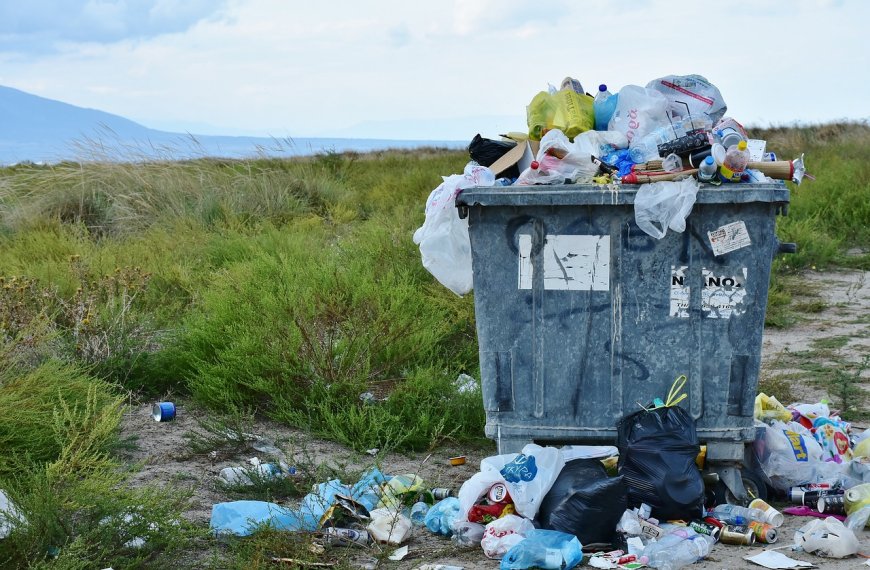
Based on data from the Ministry of Environment and Forestry (KLHK), waste generation during Ramadan in 2023 will actually increase by 20 percent due to food waste and kamaşan waste. For example, the volume of waste generation in Surabaya City will increase during Ramadhan 2023. Per day, the amount of waste entering the Benowo Surabaya Final Disposal Site (TPA) will increase by 100-200 tons to reach 1500-1600 tons of waste. Likewise, South Tangerang City recorded an increase in waste generation of 5-10% compared to normal days, namely around 970 tons per day.
Still based on KLHK data, organic waste in the form of food scraps dominates the highest waste composition in Indonesia, reaching 41.2%, followed by plastic waste at 18.2%. If we look at the source, household waste contributes the largest amount of national waste, reaching 39.2%. Waste that is not managed properly can have a negative impact on health because it has the potential to pollute the environment and increase carbon emissions from waste.
Reduce waste from an early age
Green Ramadhan is a tagline that aims to reduce the environmental impact of activities during Ramadan. This global initiative aims to encourage people to care more about the environment and reduce carbon emissions produced during this holy month.
In the 'Guide to an Environmentally Friendly Ramadhan', Director of the Islamic Foundation for Ecology and Environmental Sciences Kamran Shezad said, the main principle for managing waste is not to produce waste in the first place, or to try to minimize it as much as possible. According to Kamran, this is truly in accordance with the lifestyle of the Prophet Muhammad SAW as described by his wife Sayyidina Aisyah Ra and recorded in the following hadith.
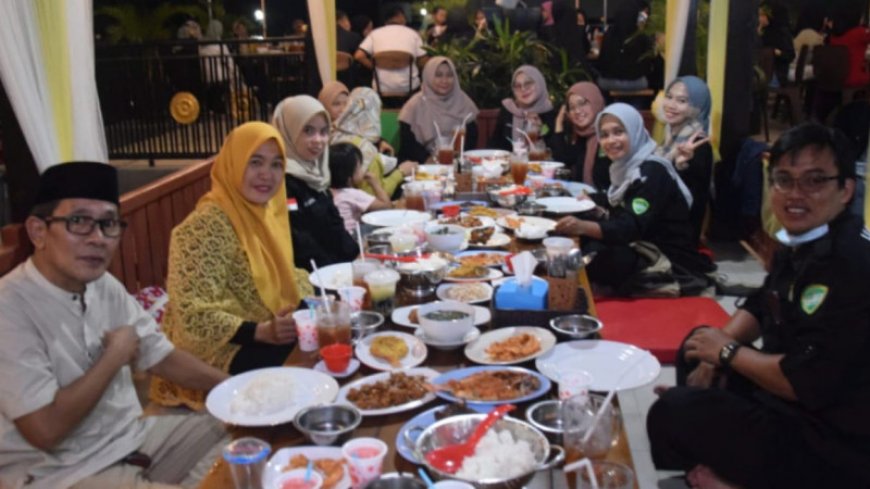
“He was the most generous man, who never kept a dinar or a dirham with him overnight. If he had something left and he couldn't find someone to give it to before nightfall, he wouldn't go home until he donated it to someone who needed it. He did not take anything from what Allah SWT had given him, except the simplest provisions for one year, dates and jam, giving it all for the sake of Allah SWT. He was never asked for anything but he gave it, then he would go back to his annual supply and donate it to whoever needed it more, then he might run out of it before the year was out. He used to mend his own sandals and mend his own clothes.” (HR Muslim)
This hadith explains the 3Rs – Reduce, Reuse & Recycle. Rasulullah SAW lived a sustainable lifestyle and his example shows us how we can live by sharing, caring, and reducing demand on our natural resources and reducing the amount of waste we produce.
For this reason, Kamran provides practical instructions for Muslim people who are fasting to reduce waste and save energy during Ramadan.
- Think about alternatives to the plastics currently used. The idea is to try to find an option that will eliminate the use of plastic all together. When attending an iftar event or going to the mosque, bring your own drinking water bottle so it doesn't get spilled.
- Reusable cutlery is a great way for everyone to get involved and help clean up afterward. This provides an opportunity to create a community-friendly environment.
- Pay attention to ways in which you avoid using plastic when breaking the fast so you can share these practices with others. As much as possible, you can share and encourage others to do the same.
Remember that plastic is usually used for comfort. However, this convenience comes at a cost to the planet that Allah created for us to protect and live on. Our efforts to minimize plastic waste will be assessed and appreciated like worshiping Allah SWT. - Assess the plastic that will be used when breaking the fast. At this early stage you might be very surprised how much plastic is involved.
- Start thinking about the most obvious uses. Plastic that you might use for the food itself, for example plates, drink containers and cutlery. You can then think about plastics used in less obvious aspects of food, for example food packaging and/or ingredients.
- The primary source of plastic is the most important to your message about reducing waste at and breaking the fast, as it is a real difference that people can see. This is your way of showing that plastic-free breaking the fast is possible, and one can break the fast with others in a way that follows the example of the Prophet (PBUH).
- Try to reduce the amount you waste in preparing food. Be careful with water when washing vegetables and so on, or washing the surface of eating utensils.
- Start a compost bin and make sure all unused fresh food is composted.
- When visiting stores, use reusable shopping bags.
- Save electrical energy by avoiding digital devices. Spend more time reading physical copies of the Quran and other books.
- Pay close attention to expiration dates to make sure you use food before it's up.
- Find a nearby food bank to donate unwanted supplies left in the cupboard. Use overripe fruit and vegetables to make desserts, smoothies and low-sugar soups for Iftar/Suhoor, also pay attention to how much water you use.
- During the fasting month, you can plan meals and freeze them, so you always use up leftovers, rather than starting from scratch every night.


